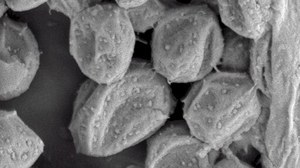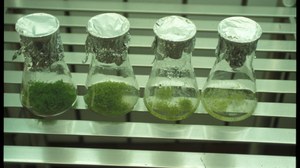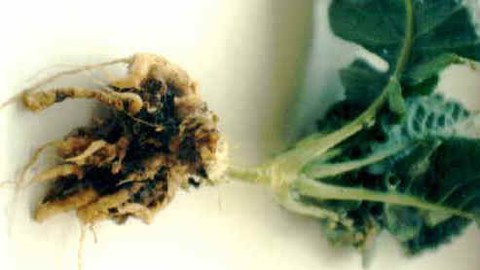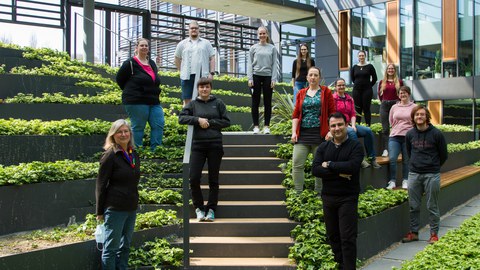Professor for Plant Physiology
Our research focuses on mechanisms leading to plant-pathogen (clubroot disease) interactions or the interaction with beneficial microorganisms (fungal endophytes). We are interested in the role of plant hormones and secondary metabolites for development of pathogenic or endophytic interactions of fungi with host plants. For better understanding of the events leading to pathogenesis, we have begun to identify differentially expressed genes during host/pathogen interaction. We are also interested in the role of plant hormones in biotic and abiotic stress situations.
 © Jutta Ludwig-Müller
© Jutta Ludwig-Müller
Our topics
To understand the pathogenesis during the development of root galls (clubroot disease) we have begun to identify differentially expressed genes of the host plant and the pathogen by different methods. Thoste genes from the host that seem to play important roles during the disease progression are investigated further using qPCR, functional analyses by using mutants of the host plant Arabidopsis thaliana, biochemical investigations by heterologous expression of the respective genes and characterization of the resulting proteins and determination of endogenous compounds, including plant hormones. Here, we focus mainly on the growth promoting plant hormones such as auxin, but also defensce hormones, such as salicylic acid. From these results we aim to find strategies to ultimately control the disease which is a huge problem worldwide. A different strategy is to use endophytes for biocontrol. We have started to investigate the biocontrol potential of different endophytic fungi to reduce clubroot symptoms on important brassica crops. Here, phytopathological as well as molecular methods together will help to elucidate promising strategies for the greenhouse and later the field.
Next to the role of auxins, especially the major compound indole-3-acetic acid, during plant - microbe interactions, we investigate the role of auxin (and other hormones) in abioptic stress interactions. Here, we are interested in the mechanisms that lead to the control of the homeostasis. Especially, we inverstigate the enzymes that are involved in the synthesis and hydrolysis of inactive auxin conjugates. Conjugates can be formed by binding auxin enzymatically to amino acids or sugars and these are reversibly cleaved to the active auxin. This mechanism is very important, since in plants about 90% of the total auxin can be found in the inactive conjugated form. Also, we are interested to understand the biology of longer chain auxins, such as indole-3-propionic acid and indole-3-butyric acid for plant development.
Another research area deals with the importance of selected secondary metabolites. On the one hand we investigate the interaction of endophytes and plants for the synthesis of valuable secondary compounds and how the production can be increased and on the other hand we use cell and organ cultures to increase specific metabolite production.
More on the topic: Link Research





